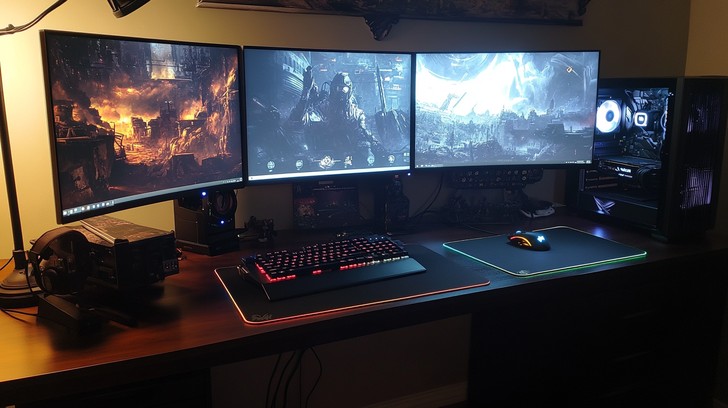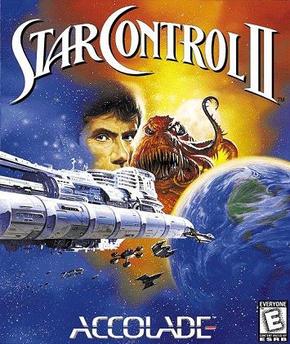The Unofficial Evolution: How Game Mods Redefine the Player Experience
In the world of Video Games, the launch of a title is often seen as the final word from its creators. However, for a vast and passionate segment of the Gaming Community, it’s merely the beginning of the conversation. This is the world of Game Mods, user-created modifications that alter, expand, or completely transform a game from its original state. Far from being simple cosmetic tweaks, mods represent a powerful and dynamic force within the Gaming Industry, capable of extending a game’s lifespan by decades, birthing entirely new genres, and serving as a crucial launchpad for the next generation of game developers. From a simple texture swap in an RPG Game to a total conversion that turns a medieval fantasy into a sci-fi epic, modding embodies the creative spirit of PC Gaming culture. This article delves into the technical anatomy of game mods, explores the ecosystem that allows them to thrive, and analyzes their profound impact on gaming as we know it.
The Anatomy of a Game Mod: From Simple Tweaks to Total Conversions
At its core, a game mod is any alteration made by users to a released video game. These modifications can range from minute adjustments to sweeping overhauls that render the original game almost unrecognizable. Understanding the different types of mods is key to appreciating their versatility and the technical skill involved in their creation.
What is a Game Mod? A Technical Definition
Technically, a mod modifies a game’s existing assets or code. This can involve replacing texture files, altering 3D models, changing sound effects, or injecting new scripts to change game logic and mechanics. The ease with which a game can be modded often depends on the underlying technology. Game engines like Unreal Engine and Unity have become popular in Game Development partly because their architecture can be made accessible to users. Forward-thinking developers often release a Software Development Kit (SDK), a set of tools that allows users to interact with the game’s engine and assets in a structured way, dramatically lowering the barrier to entry for aspiring modders.
The Spectrum of Modding
Mods exist on a vast spectrum of complexity and impact, each catering to a different desire within the player base:
- Cosmetic Mods: These are the most common and accessible types of mods. They alter the game’s visual or auditory presentation without changing gameplay. Examples include high-resolution texture packs that push modern Graphics Cards to their limits, new character skins, custom weapon models, or user-made radio stations in games like Fallout.
- Gameplay Overhauls: These mods dig deeper into the game’s code to alter its core mechanics. This could mean rebalancing weapons in an FPS Game, introducing new survival mechanics into an open-world RPG, or completely rewriting the enemy AI to be more challenging. A famous example is the Long War mod for XCOM: Enemy Unknown, which transformed the strategy game into a much deeper and more demanding experience.
- Content Expansions: Functioning like unofficial DLC, these mods add new content to the game. This can include new quests, storylines, characters, maps, and items. The modding scene for Bethesda’s The Elder Scrolls V: Skyrim is legendary for this, with mods like Falskaar and Beyond Skyrim: Bruma adding dozens of hours of new, professionally voiced content.
- Total Conversions: This is the pinnacle of modding ambition. A total conversion uses a game’s engine and core systems as a foundation to create an entirely new game. The most influential examples in Gaming History started this way. Counter-Strike was a mod for Half-Life, Dota was a custom map for Warcraft III that spawned the entire MOBA genre, and DayZ was an ARMA 2 mod that helped kickstart the Battle Royale phenomenon.
The Modding Ecosystem: Tools, Platforms, and Communities
A thriving modding scene doesn’t happen in a vacuum. It requires a supportive ecosystem built upon developer tools, accessible distribution platforms, and a strong community. This infrastructure is what separates games with a handful of mods from those with tens of thousands.

The Developer’s Role: Fostering a Mod-Friendly Environment
The most successful modding communities are almost always for games where the developer has actively encouraged it. The gold standard is the release of an official SDK, like Bethesda’s Creation Kit or Valve’s Source SDK. These toolkits give modders the power to create and manipulate the game world with a degree of control similar to that of the original developers. In contrast, games with heavily encrypted files, aggressive anti-cheat software (common in Competitive Gaming titles like Valorant), or restrictive EULAs can stifle a modding community before it even begins. The developer’s stance is the single most important factor in whether a game becomes a modding powerhouse.
Platforms and Distribution: Where Mods Live
Once a mod is created, it needs to be shared. Over the years, several key platforms have emerged as central hubs for mod distribution:
- Steam Workshop: As detailed in frequent Steam News, the Workshop is Valve’s integrated solution for mod distribution. It allows users to subscribe to mods with a single click, automatically downloading, installing, and updating them. This seamless integration has been a game-changer for titles like Cities: Skylines, XCOM 2, and the Total War series, making modding accessible to even the most casual players.
- Nexus Mods: An independent titan in the modding world, Nexus Mods is a massive repository hosting millions of files for over a thousand games. It’s the de facto home for modding communities of major RPG Games like The Witcher 3, Cyberpunk 2077, and the Fallout series. The platform is supported by powerful mod management tools like Vortex, which help users handle complex load orders and avoid conflicts.
- Dedicated Communities: Some games foster their own unique ecosystems. The Minecraft modding scene, a constant source of Minecraft News, is a prime example, with dedicated launchers and websites like CurseForge serving a colossal community. Similarly, sites like Mod DB have been a cornerstone of the Gaming Culture for decades, hosting mods for a vast library of classic and modern games.
The Rise of Modding on Consoles
Historically a bastion of PC Gaming, modding has slowly begun to make inroads into the world of Console Gaming. As covered in Xbox News and PlayStation News, companies like Bethesda have pioneered curated modding systems for games like Skyrim and Fallout 4 on Xbox and PlayStation. However, the experience is more limited. Due to platform security policies, console mods are typically vetted and cannot include external scripts or assets (a particularly strict limitation on PlayStation), resulting in a more restricted selection compared to the “wild west” of PC modding.
The Impact of Modding on the Gaming Industry and Culture
The influence of game mods extends far beyond simply providing new content for players. Modding has fundamentally shaped the Gaming Industry, acting as an engine for innovation, a training ground for talent, and a powerful tool for community engagement that keeps games alive and profitable for years.
Extending Game Lifespans and Driving Sales
A vibrant modding community is the ultimate form of long-term player engagement. Games like Skyrim (2011), Mount & Blade: Warband (2010), and Half-Life 2 (2004) maintain active player bases today largely because of a constant stream of new, user-generated content. This incredible longevity drives long-tail sales, as new players are drawn in by the promise of a virtually limitless experience. A game’s moddability can become a major selling point, influencing Game Reviews and purchasing decisions long after its initial release. This sustained relevance is a dream for any publisher and a testament to the power of community creation.
Mods as a Proving Ground for Future Developers

For many professionals in the Game Development world, the journey began with modding. It’s a hands-on, practical education in Game Design, programming, 3D art, and project management. Aspiring developers can build a portfolio, learn to work collaboratively, and receive direct feedback from a real audience. The industry has taken notice. The team behind the popular The Forgotten Empires mod for Age of Empires II was hired by Microsoft to create official expansions. The creator of the hugely popular Stardew Valley, Eric “ConcernedApe” Barone, started by trying to create mods for Harvest Moon. Modding is a direct talent pipeline into the industry’s biggest studios.
From Mod to Mainstream: The Birth of Genres
Perhaps the most profound impact of modding is its ability to innovate and create entirely new genres. The industry’s biggest trends of the last two decades were born in the modding scene:
- The tactical team-based shooter, now a cornerstone of Esports News, was codified by Counter-Strike, a Half-Life mod.
- The Multiplayer Online Battle Arena (MOBA) genre was born from Defense of the Ancients (Dota), a custom map for Warcraft III. This single mod directly led to the creation of behemoths like League of Legends and Dota 2.
- The Battle Royale craze that produced Fortnite and Apex Legends was ignited by mods for ARMA 2 and Minecraft, later crystalized into a standalone game by Brendan “PlayerUnknown” Greene, himself a modder.
These examples prove that the creativity of the Gaming Community can outpace the R&D of even the largest AAA Games publishers, pushing the boundaries of what’s possible in interactive entertainment.
Getting Started with Modding: Best Practices and Pitfalls
Diving into the world of game mods can be an incredibly rewarding experience, whether you’re a player looking to enhance your favorite game or an aspiring creator. However, it’s important to proceed with caution and follow best practices to ensure a smooth and safe experience.

For Players: A Guide to Safe Modding
Installing mods can dramatically improve a game, but a wrong step can lead to crashes, corrupted saves, or worse. Here are some essential tips:
- Use Reputable Sources: Always download mods from trusted platforms like the Steam Workshop, Nexus Mods, or well-known community sites. Avoid random links from forums or social media, as they can be a vector for malware.
- Use a Mod Manager: For games with complex mods, a dedicated manager like Vortex or Mod Organizer 2 is essential. These tools help install, uninstall, and manage mods, and critically, they help resolve conflicts and manage the “load order”—the sequence in which mods are loaded by the game.
- Read Everything: Pay close attention to a mod’s description, installation instructions, and compatibility requirements. Check if it requires other mods to function correctly.
- Back Up Your Saves: Before installing a significant number of mods, always create a backup of your save game files. A poorly made or conflicting mod can corrupt your progress permanently.
- Be Mindful of Performance: High-resolution texture packs and script-heavy mods can significantly impact performance. Ensure your Gaming PC or Gaming Laptop, particularly its Graphics Card and CPU, can handle the increased load.
For Aspiring Modders: Tips for Creation
If you’re looking to start creating your own mods, the journey is challenging but fulfilling. Start small by tweaking an existing item’s stats or changing a texture. Familiarize yourself with the official or community-made tools for your chosen game. Most importantly, engage with the Gaming Community. Forums and Discord servers are invaluable resources for tutorials, troubleshooting, and feedback. Patience is key; Game Development is an iterative process, and your first mod is just the beginning of a long learning curve.
Conclusion: The Enduring Power of Community Creation
Game Mods are far more than a niche hobby; they are a fundamental pillar of modern Gaming Culture. They represent a unique and powerful symbiosis between developers who create worlds and the players who inhabit, expand, and ultimately redefine them. By extending the life of beloved titles, providing a crucial training ground for new industry talent, and innovating entire genres from the ground up, the modding community has proven itself to be an indispensable force for creativity and evolution. As the Gaming Industry continues to grow, embracing new technologies like VR Gaming and Cloud Gaming, the role of the modder will only become more critical. They are the passionate architects of gaming’s unofficial future, ensuring that our favorite virtual worlds are never truly finished.






